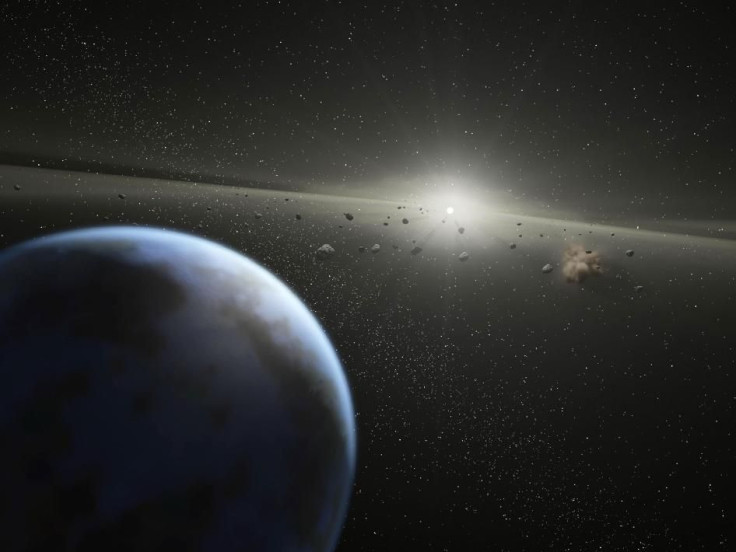NASA Asteroid Tracker: 3 Asteroids, Including 853-Footer, To Skim Earth On Monday

NASA has detected a total of three asteroids that are currently headed for Earth. According to the space agency’s Center for Near Earth Object Studies (CNEOS), the largest asteroid from the group is almost twice as big as the Great Pyramid of Giza in Egypt.
The first asteroid that’s set to fly past Earth has been identified as 2019 JF1. As indicated in CNEOS’ database, this asteroid is currently moving at a speed of 9,600 miles per hour. It has an estimated diameter of 328 feet.
CNEOS predicted that 2019 JF1 will approach Earth on Sept. 16 at 2:44 am EDT. During this time, the asteroid will be about 0.02867 astronomical units or roughly 2.7 million miles from the Earth’s center.
Trailing behind 2019 JF1 is an asteroid known as 2018 FU1. CNEOS estimated that this asteroid is about 85 feet long. According to the agency, the asteroid is currently traveling at a speed of 10,500 miles per hour.
2018 FU1 is expected to fly past Earth on Sept. 16 at 8:22 am EDT. During its approach, the asteroid will be about 0.04709 astronomical units or around 4.4 million miles from the planet.
The last asteroid that will approach Earth on Monday is called 2019 RC. CNEOS noted that the asteroid is currently traveling at a speed of 33,700 miles per hour. As the biggest asteroid in the group, 2019 RC has an estimated diameter of 853 feet.
Due to its massive size, 2019 RC will not burn up if it enters Earth’s atmosphere. Instead, it will crash into the ground and create a crater that’s a couple of miles wide. The explosion from the asteroid’s impact will be powerful enough to wipe out a city.
According to CNEOS, 2019 RC will zip past the planet on Sept. 16 at 4:43 pm EDT. During this time, the asteroid will be about 0.04464 astronomical units or around 4.1 million miles from Earth’s center.
All three asteroids have been classified by CNEOS as Apollos. Like other Apollo asteroids, 2019 JF1, 2018 FU1 and 2019 RC have orbits that go around the Earth and the Sun. Occasionally, their orbits intersect with that of Earth.
© Copyright IBTimes 2024. All rights reserved.





















